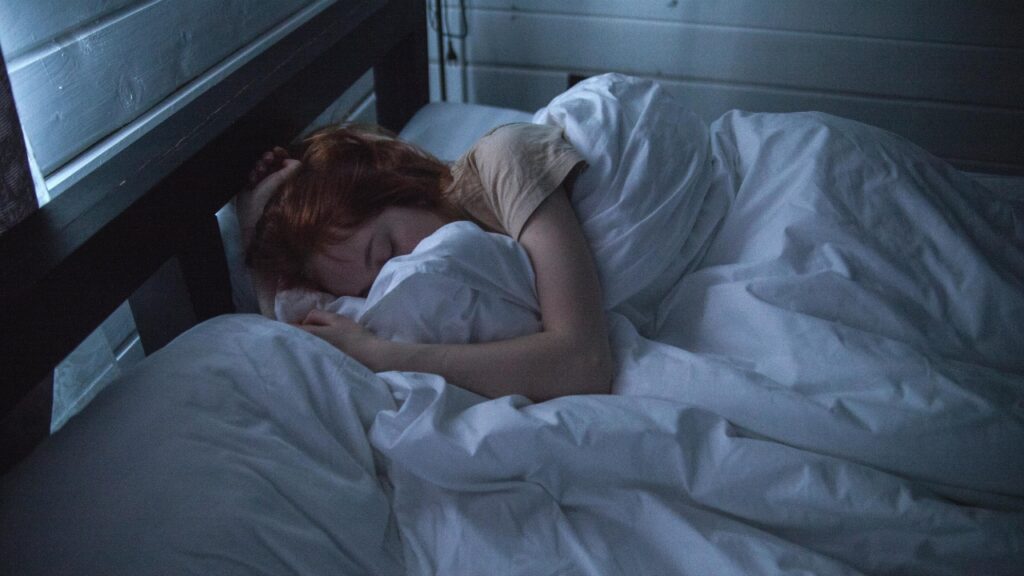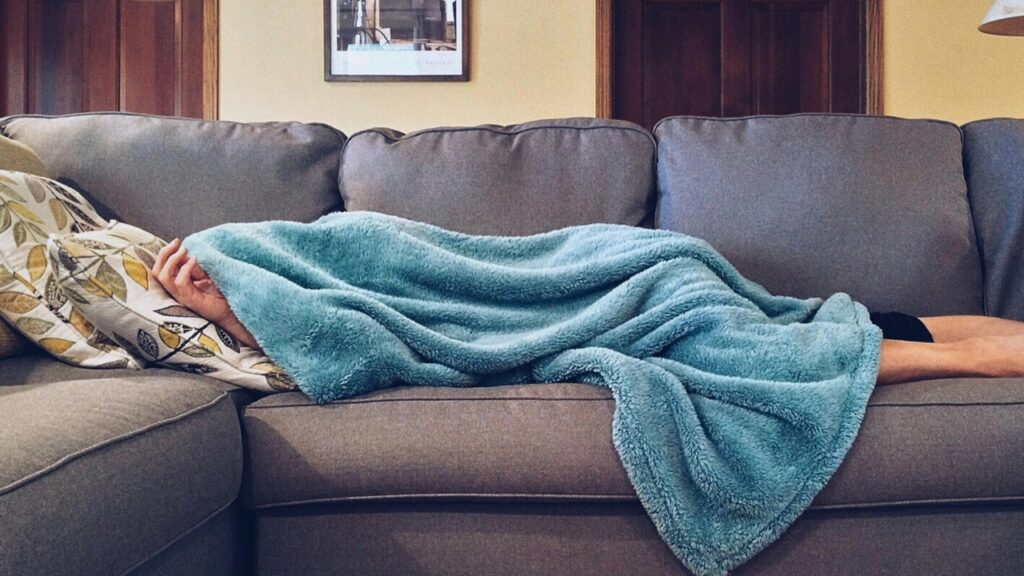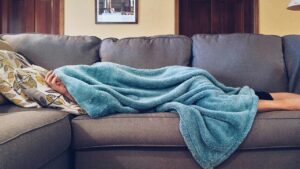Sleep might seem like a simple biological necessity, but for teenagers, it represents a complex intersection of physical development, emotional regulation, and mental health. Many parents struggle with their teen’s sleep patterns—late bedtimes, difficulty waking, weekend sleep marathons—often attributing these behaviors to laziness or defiance. However, teen sleep patterns are deeply connected to both normal adolescent development and mental health concerns.
The Science of Teen Sleep
During adolescence, significant changes occur in sleep biology that make it genuinely difficult for teens to fall asleep early and wake up early. The hormone melatonin, which signals sleepiness, is released later in the evening for teenagers than for children or adults. This biological shift means that a teen’s natural bedtime may be 11 PM or later, regardless of how early they need to wake for school.
Additionally, teens require approximately nine hours of sleep per night for optimal functioning—more than most adults need. When biological late bedtimes meet early school start times, many teens operate in a state of chronic sleep deprivation that affects every aspect of their functioning.
This sleep deprivation isn’t merely an inconvenience—it has profound effects on the developing teenage brain. Areas responsible for emotional regulation, decision-making, and impulse control are particularly vulnerable to sleep loss, making teens more reactive, impulsive, and emotionally volatile when sleep-deprived.
Sleep and Emotional Regulation
The relationship between sleep and emotional health is particularly strong during adolescence. Sleep deprivation affects the amygdala, the brain’s emotional processing center, making it more reactive to stress and negative emotions. Teens who don’t get adequate sleep often experience heightened anxiety, increased irritability, and greater difficulty managing everyday stressors.
Conversely, teens struggling with anxiety, depression, or other mental health conditions often experience sleep disturbances that worsen their emotional symptoms. This creates a challenging cycle where poor mental health disrupts sleep, and poor sleep exacerbates mental health concerns.
At BlueRock Behavioral Health, we frequently observe this sleep-mental health connection in the teens we treat. Many arrive with significantly disrupted sleep patterns that have contributed to their emotional difficulties. Our residential program allows us to address sleep hygiene as a fundamental component of mental health treatment.

Common Disruptions
Teens experiencing mental health challenges often display specific sleep patterns that differ from normal adolescent sleep preferences. Understanding these patterns can help parents recognize when sleep issues may indicate deeper concerns.
Insomnia and Racing Thoughts: Teens with anxiety often lie awake at night with their minds racing, unable to quiet their thoughts enough to fall asleep. They may worry about social situations, academic performance, or catastrophic scenarios that feel very real in the darkness.
Hypersomnia and Depression: Some teens with depression sleep excessively, using sleep as an escape from emotional pain or because depression disrupts the quality of their sleep, leaving them constantly exhausted despite spending many hours in bed.
Nightmare and Trauma: Teens who have experienced trauma may avoid sleep due to recurring nightmares or may wake frequently throughout the night, never achieving restorative sleep. This sleep disruption often worsens trauma symptoms during waking hours.
Social Media and Screen Interference: Many teens with mental health concerns use technology as a coping mechanism, scrolling social media or playing games late into the night. The blue light from screens disrupts natural melatonin production, while the content may increase anxiety or depression.
Substance-Related Sleep Issues: Teens experimenting with substances often experience significant sleep disruptions, either from the direct effects of substances or from the rebound effects as substances leave their system.
The Academic and Social Impact
Poor sleep doesn’t just affect teens at home—it follows them to school and into their social relationships. Sleep-deprived teens have difficulty concentrating in class, retaining information, and performing academically. They may appear unmotivated or oppositional when they’re actually struggling with the cognitive effects of insufficient sleep.
Socially, sleep-deprived teens often have difficulty reading social cues, managing conflicts, and maintaining positive relationships. They may be more likely to interpret neutral social interactions negatively or to respond to minor frustrations with disproportionate emotional reactions.
Teachers and parents may attribute these difficulties to behavioral problems or lack of effort, not recognizing that sleep deprivation is driving many of the concerning behaviors they observe.
Creating Healthy Environments
Addressing teen sleep issues requires understanding both biological realities and environmental factors. While parents cannot change their teen’s biology, they can create conditions that support better sleep quality and duration.
Consistent Sleep Schedule: Maintaining regular sleep and wake times, even on weekends, helps regulate the body’s internal clock. While teens may naturally prefer later bedtimes, consistency is more important than specific timing.
Screen-Free Bedroom: Creating a bedroom environment free from phones, tablets, and other screens removes both the temptation for late-night usage and the sleep-disrupting effects of blue light. Many families find success with charging stations outside bedrooms.
Comfortable Sleep Environment: Cool, dark, and quiet bedrooms promote better sleep quality. Some teens benefit from white noise machines or blackout curtains to create optimal conditions.
Pre-Sleep Routine: Developing calming activities before bedtime helps signal the body that sleep is approaching. This might include reading, gentle stretching, or listening to calming music.
Avoiding Sleep Disruptors: Caffeine, large meals, and intense exercise close to bedtime can interfere with sleep quality. Understanding these connections helps teens make choices that support better rest.
The Role of Sleep in Treatment
At BlueRock, we recognize that addressing sleep is often a crucial first step in mental health treatment. Our residential program allows us to create optimal sleep environments and establish healthy sleep routines that support overall recovery.
The structured daily schedule in our program naturally supports healthy sleep patterns, while our mountain setting provides a calm, technology-reduced environment conducive to restorative sleep. Many teens discover that they sleep better at BlueRock than they have in months or years at home.
As teens begin getting adequate, quality sleep, we often see improvements in mood, emotional regulation, academic performance, and social relationships. These improvements create positive momentum that supports other aspects of treatment and recovery.
Supporting Better Sleep at Home
Parents can play a crucial role in supporting their teen’s sleep health while recognizing the limits of their influence. Understanding that some sleep patterns reflect normal adolescent biology helps parents respond with appropriate expectations rather than frustration.
Model Good Sleep Habits: Teens learn more from what they observe than what they’re told. Parents who prioritize their own sleep and demonstrate healthy sleep habits provide powerful examples.
Address Underlying Mental Health: If sleep issues persist despite good sleep hygiene, they may indicate underlying mental health concerns that require professional attention. Sleep problems are often among the first signs of developing anxiety, depression, or other conditions.
Collaborate on Solutions: Rather than imposing sleep rules unilaterally, involve teens in developing family agreements about sleep and technology use. Teens are more likely to follow guidelines they’ve helped create.
Recognize Individual Differences: Some teens are naturally night owls while others are morning larks. Working with your teen’s natural tendencies rather than against them often yields better results.
The connection between sleep and teen mental health is profound and often underestimated. Addressing sleep issues can significantly impact a teen’s emotional wellbeing, academic performance, and social relationships, while untreated sleep problems can worsen existing mental health concerns.
If your teen is struggling with persistent sleep issues that may be connected to mental health concerns, professional evaluation can help identify underlying causes and appropriate interventions. BlueRock Behavioral Health, located at 41 Heros Wy, Hendersonville, NC 28792, addresses sleep as an integral component of adolescent mental health treatment in our serene Blue Ridge Mountain setting. Contact us at 828-671-3003 to learn more about our comprehensive approach to teen mental health and wellbeing.






















